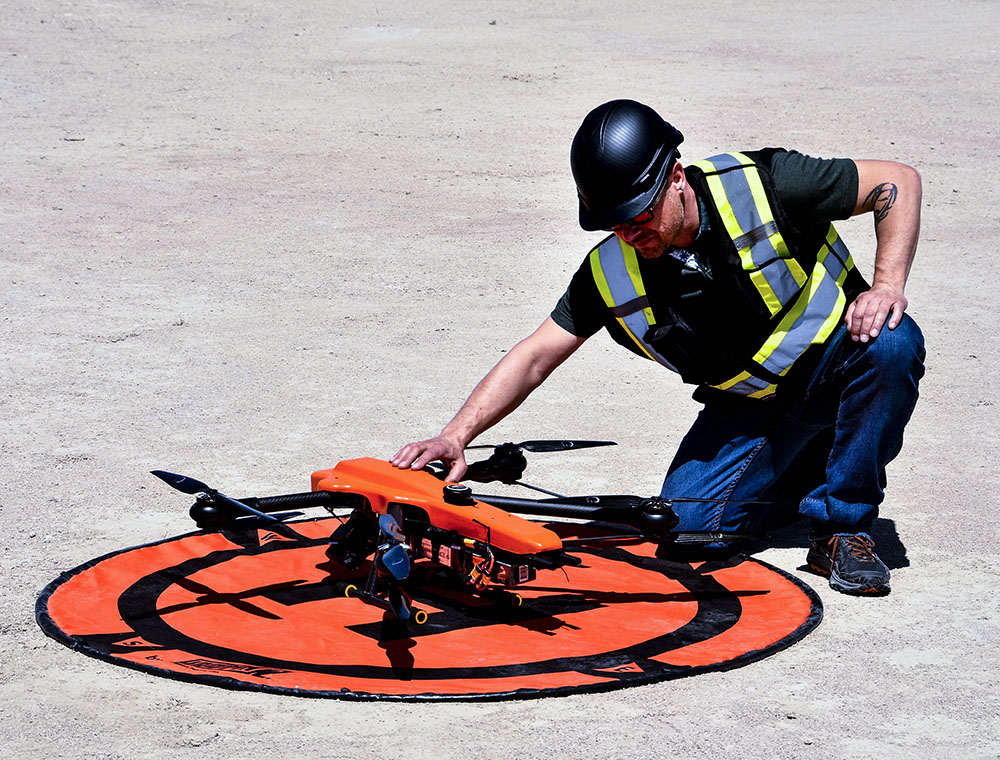
SFOC RPAS – Drone Services in Canada
If you are looking to start a business offering UAV or Drone Service in Canada it’s not exactly easy. Besides the regular operational, business, and marketing concerns you must also pay strict attention to the regulatory requirements.
In nearly every case you will need a Special Flight Operation Certificate (SFOC) to perform drone services in Canada. The SFOC is a document provided by Transport Canada that outlines the specific conditions under which you are allowed to operate.
The conditions of the SFOC that you will be required to fulfill are outlined by Transport Canada within the Staff Instructions (SI), which is a guidance document used by Transport Canada staff to review and approve both individual or one-time SFOCs and standing SFOC’s.
The one-time pilot certificate is specific to individual operations carried out for a specific reason at a specific location and time, whereas the standing SFOC as a “Compliant Operator” allows the service provider to provide ongoing flight services for up to 3 years.
In both cases, you will need to provide sample detail describing the drone operations, personnel, equipment, safety precautions, emergency response procedures, communication, training, and much more. However, if you request a standing SFOC you will be required to supply considerably more information than if you are requesting a one-time SFOC and of course, adhere to a higher level of advanced operations.
For example, as a “compliant operator” you must ensure that,
- All pilots are appropriately qualified.
- A small UAV system meets the Design Standard.
- You remain a legally compliant operator, and you will be required to submit:
- Remotely piloted aircraft operator operation’s manual.
- Standard Operating Procedures (SOPs).
- Training manual;
- UAV system flight manual;
- Remotely piloted aircraft maintenance manual;
- Declaration of Compliance; (Two statements required for recognition of a Compliant UAV)
- Statement of Conformity (Two statements required for recognition of a Compliant UAV).
However, once you become a “Compliant Operator” the notification process for future work is very fairly routine, it’s like being pre-qualified to operate.
Whether your intent is to apply for a one-time SFOC or a standing special flight operation’s certificate there are effectively 2 classes, simple and complex. As you can imagine you will be required to supply more information and have greater demands made of you if your operation is deemed complex.
If you cannot meet the requirements as described in Section 11 that outline the “simple” SFOC Canadian aviation regulations you must follow those found in Section 10 the “complex” SFOC requirements.
Foreign operators:
If you are a foreign drone pilot from outside the country (that means you are not a Canadian citizen or permanent resident, or a corporation incorporated under provincial or federal law and want to fly within Canadian airspace) You need an approved SFOC to fly drones for any reason.
If you are a drone pilot from a foreign country must have a Canadian drone pilot’s license to fly on the ground in Canada even if licensed in your country of origin.
In order to perform basic operations, you’ll have to pass the online test for your Pilot Certificate Basic Operations. To be able to perform advanced operations, you’ll be required to:
- Pass the online exam for advanced operation.
- Complete a flight review and then apply for an application for your Pilot Certificate – Advanced operations or prove having scheduled a flight review at drone flight schools once you’ve been accepted into Canada
You have to be authorized to utilize drones for the same use in the country you reside in. Include the country’s approval or authorization along with your application for SFOC.
How Do You Apply for SFOC?
If you are looking for a template to use in order to apply, currently Transport Canada does not provide it or have it, we’ve asked. Here was their response:
“Unfortunately there is no standardized application for an SFOC application… SFOC applicants are to use the Canadian Aviation Regulations(CARs) – Part VI, Subpart 3, Division IV – Miscellaneous Special Flight Operations. These standards are found under 623.65(d) along with the Staff Instruction (SI) are to be used as a reference for the written application.”
The reality is you must go through an evaluation of your business/operational procedures in relation to what you intend to do for your clients (drones for real estate, inspections, etc) AND in relation to the SI in order to:
- Establish operational processes, procedures, and protocols
- Put pen to paper to describe them for the approval process.
However, firstly check to see if you are exempt, this is the simplest route.
 Commercial Exemptions:
Commercial Exemptions:
If you intend to fly for commercial purposes you may qualify for an exemption if your craft is less than 2 kg you must adhere to 37 conditions outlined under the exemption from sections 602.41 and 603.66 of the Canadian Aviation Regulations (CAR).
If you intend to fly commercially you may qualify for an exemption if your craft is between 2 kg and 35kg you must adhere to 58 conditions also described under the 602.41 and 603.66 of the CARs.
Exemptions are only permitted until December 21, 2016.
One Time “Non-Commercial Flights”:
If you are not exempt to use your drone in commercial operation you must determine if your SFOC will be one time or standing. Then the bottom line is that there is more or less a set of “standard” info that is required and a set of operational information that is required before you fly.
Standard info:
- Personnel
- Role
- Responsibilities
- Drone descriptions
- Safety procedures
- Flight checklists
- Emergency procedures
- Training.
We assume that these will remain more or less the same for you.
Client’s Operational info:
- Address
- Maps
- Time of day.
- i.e., the info that may change client to client.
The good news here is that much of the “standard” info will remain the same and you can develop “templates” for each of your service lines if you don’t intend to become a “compliant operator”, having said this keep your ear to the ground for the upcoming changes to the regulations (2016) to make sure of the submission requirements, things change.
In general, you must carefully work through each Section in the SI to determine what to include and describe for your Special Flight Operation’s Certificate application, more details are better of course so long as it’s relevant to your operations.
I suggest following the SI table of contents to establish your document structure, that way you will be less likely to miss key info. For example, start at Section #4 “Personnel” and select the criteria that will apply to your operations then once you have built out what you think is required go through each to describe how your operations will meet them.
Keep in mind that these are real people reviewing your info so the better it’s organized and presented the quicker they will be able to approve or respond with what is missing. I suspect they use a checklist for both simple and complex SFOC applications to make it easier.
Once complete you submit your document to the relevant Regional Transport Canada office. It can take up to 21 days if your planned operation is complex so give yourself lots of lead time. We have had a simple special flight operations certificate application for real estate photography approved in about a week.
Sidebar: Do not forget that you may be required to hold a Restricted Operator Certificate – Aeronautical per the Radio Communications Regulations.
Depending on the Canadian airspace in accordance with Part 6, Division V of the Canadian Aviation Regulations remotely piloted aircraft pilots may be required to establish and maintain direct two-way radio communication with the appropriate Air Traffic Services (ATS) Unit. Generally, this means if you are operating VLOS aircraft at or in the vicinity of an uncontrolled or controlled aerodrome in controlled airspace A, B, C, D, E, or F you must maintain radio communication with ATS, and therefore you are required by law to have a Restricted Operators Certificate – Aeronautical (ROC-A) issued by Industry Canada.
Additionally, you may also need a “radio station license” issued by Industry Canada however, if you are using mobile or a handheld radio for communications you will not need this.
If you are flying commercially in non-restricted airspace Class G and you are using license-exempt radio frequencies (e.g. 72 MHz, 902-928 MHz, 2.4 GHz, etc.) you are not required to hold a Restricted Operators Certificate – Aeronautical, nor are you are required to apply for a radio station license, only your SFOC is required.
Keep in mind, in order to get your Special Flight Operations Certificate Application approved you have to provide the substantiating documentation as well as proof of insurance for no less than 100,000 dollars, which is a bit of a joke since no insurance company will provide a policy having less than 500K in liability insurance. (Quotes have ranged from $3000-$550 for those we have received). Also, your insurance must specifically state that you have a UAV/UAS or Drone endorsement, general business liability insurance is not sufficient.
Finally, you might be interested to know that at the time this article was written Transport Canada does not “actively” enforce the requirements for or the conditions of an SFOC. Per their website they state:
“If an incident is reported to the department, one of our inspectors will verify that the operator followed the rules and used the aircraft safely. Local police may also verify if other laws were broken, including the Criminal Code and privacy laws.”
The bottom line here is COMMUNICATION!!!
Talk to everyone around your intended operation to ensure they are comfortable with and know what you will be doing. Do this in advance so that if someone doesn’t want your drone flying past their window you can assure them or offer to choose a date or time when they won’t be home.
You don’t have to do this…BUT…if you don’t you risk having someone call 911 to report that their privacy is being invaded & even if you have everything order you do not need (we do not need) the negative publicity that will only bring stricter regulations re; mandatory recreational drones registration in the US.
There are definitely more than a few legal requirements to fulfill however if you take a methodical approach and be thorough your SFOC application process will flow without much trouble.
Good luck and if you need help be sure to contact us we will review your operational requirement to see if we can apply on your behalf and/or conduct the service in a partnership or simply lend some advice. If you want to comment, we’d love to hear from you!


 Commercial Exemptions:
Commercial Exemptions:
0 comments